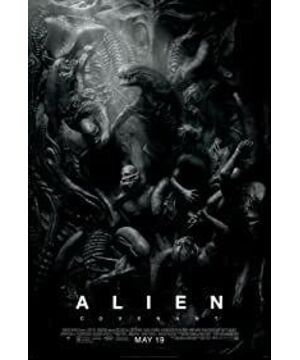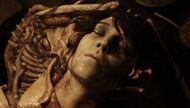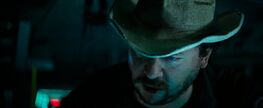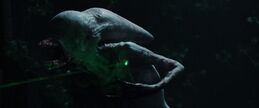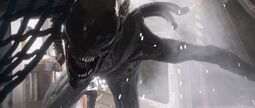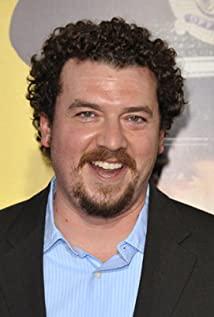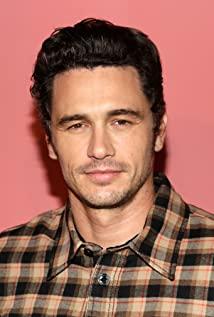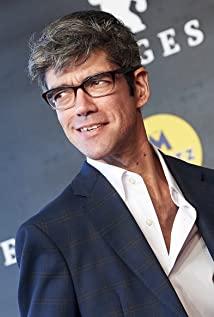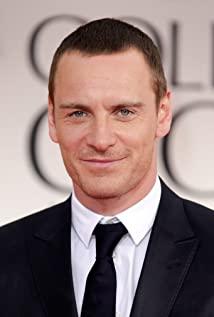The ancients said, "Thirty years is one life". It has been almost 40 years since the first "Alien" was released to the current "Alien: Covenant". I went to see "Alien: Covenant" alone last weekend night, lying on the sofa chair of IMAX, and remembered watching it on the video recorder in the Beijing office. I have copied the "Alien" that snowflakes flashed many times, and I have watched the six parts for more than 20 years.
From the late 1960s to the late 1970s, science fiction films began to reinvent themselves, Kubrick, Lucas and Ridley Scott successively used "2001 A Space Odyssey" (1968), "Star Wars" (1977) and Alien (1979) worked together to elevate sci-fi in the B-movie landscape. Two other films are also worth mentioning: Lucas' "THX 1138" is Brave New World and "1984" on the big screen, "Solaris" is more like a literary film, Tarkovs Ki looks back and contemplates the entire human race through the ocean on the alien planet.
The arrival of great times and great movies is something not everyone, including experts, can immediately recognize. Of 2001: A Space Odyssey, heavyweight film critic Pauline Kael commented: "Kubrick literally did every stupid thing he wanted to do with a huge sci-fi setting and (Kubrick really doing every dumb thing he wanted to do, building enormous science fiction sets and equipment, never even bothering to figure out what he was going to do with them)", "It's a It's a monumentally unimaginative movie."
In contrast to 2001: A Space Odyssey, which strives to be accurate in every scientific detail, Lucas' Star Wars is a wild fantasy, and even sci-fi has a somewhat dubious identity. Although the story takes place in space, time may be in the past, and the content is a traditional story of good and evil confrontation and adventure. I still remember that when CCTV premiered during the Spring Festival, the huge iron bird walking on the black and white TV was entangled in the wire by the plane and tangled its legs and fell to the ground, just like the red rabbit horse that fell under the rope in "Romance of the Three Kingdoms". The Force may not have been translated into the Force at that time. It felt similar to the "Qi" that constitutes all things in ancient Chinese philosophy. The Force can cure diseases, live a long life, and allow people to take objects from the air. It is simply the function of "Qi Gong". Japanese swordsman Miyamoto Musashi wields a lightsaber...
"2001: A Space Odyssey" and "Star Wars" Jewels came first, and Scott combined the two styles to make "Alien" a classic in sci-fi thriller with different details and fantasy. "Alien" is Scott's second feature film, his first "The Duellists" was compared to Kubrick's "Barry Lyndon" in both subject matter and style, with Pauline Kay your praise.
Scott is British. He studied painting and design at art academy for seven years, and now he is still painting in his spare time. He once said that drawing a sketch before filming is sometimes more useful than driving for two hours. For "Alien" Before he got the script and took notes while sketching the storyboard. This is similar to Akira Kurosawa, who wanted to be a painter from the beginning. Due to lack of funds for the filming of "Shadow Warrior", Akira Kurosawa spent two years drawing all the main scenes. While 2001: A Space Odyssey impressed him, Scott had little interest in science fiction as a B-movie that lacked logic and looked goofy until he saw Star Wars. He happened to be in the United States at that time and watched it for three consecutive nights. The shock and freshness did not fade away. Thinking of "2001 A Space Odyssey", he felt that science fiction movies had a huge future. He received the script for "Alien" and immediately decided to accept the directorship.
After seeing the trailer of "Alien: Covenant", I didn't have very high expectations for the film, because I repeated several classic scenes in the first episode, such as the opening of the alien egg and the attack of the face bug, but after IMAX audio-visual bombing for two hours, I felt that Very satisfied, I was scared, shocked and entertained. I wanted to continue watching "King Arthur", but finally gave up. When I got home, I immediately read some media comments, and they didn’t seem to be too high, like the first paragraph of the New Yorker’s comment:
"Thirty-eight years ago, in Ridley Scott's Alien, we saw the crew of the 'Nosmo' change their course when they received a signal of mysterious origin. An unknown planet. Something ruthless lurks there. Now we see in Alien: Covenant, another spaceship called Covenant, suffered the same experience, made the same mistakes, put the same Something in question was brought into the ship."
In my opinion, Alien: Covenant, despite having many similar elements to the first episode, is actually a rather different movie.
fear. The horror effect that the first episode can achieve has an innate advantage, because the characters and monsters are fresh. Former U.S. Secretary of Defense Donald Rumsfeld, who was the main man at the helm of foreign wars during the George W. Bush era, said a famous quote that included fourteen "know" words at the same time:
"....because as we know, there are known knowns; there are things we know we know. We also know there are known unknowns; that is to say we know there are some things we do not know. But there are also unknown unknowns -- the ones we don't know we don't know."
The meaning behind it is actually not complicated. Generally speaking, there are three kinds of things: what we know we already know, what we know we don’t know yet, and we don’t even know what we don’t know about something.
The audience of the first episode walked into the movie theater knowing that it was a horror movie, but had no idea what kind of horror it was. The alien in the first episode is a two-person mechanical device that appears quite late in the film, and has always been a tense atmosphere that has been gripping the hearts of the audience. Although the actors had read the script in advance, Scott did not show them the specific design, until the scene where the little alien broke out of his chest, the actors themselves were scared. One even fell to the ground in fright, but that shot didn't end up in it. The aliens did not even have a frontal full-body photo in the subsequent chase scenes, and they still achieved amazing and terrifying effects. "Alien: Covenant" uses modern computer technology to make more realistic aliens, adding some ingenious ideas, the black alien tail that slowly rises under the feet of men and women in the bathroom mist, the first four episodes are different. Yes, the highlight of "Alien: Covenant" is to combine the birth of a new area of aliens with the conflict between two generations of androids in the ruins left by aliens.
attempt. The first episode of Alien is a relatively simple story, a story about a haunted house, except that the house is in space and the ghost is an alien monster. In the next three sequels, Cameron's second episode was the action movie he was good at, David Fincher's third episode had a strong religious and redemptive color, and the fourth episode French director put a lot of warmth elements, All adhering to the setting of a claustrophobic haunted house. After four episodes followed the same timeline for more than 100 years, the heroine finally returned to the ruined earth.
But these sequels weren't the sequels Scott wanted to make, and he didn't want to repeat himself. In an interview after the release of "Alien" in 1979, Scott said that the most lacking thing in the film is that there is no place in the whole film to analyze and discuss what kind of creature the Alien is and why it came from. If "Alien" makes a sequel, if he Participate in it, he will definitely include this part. He even thought that an Alien sequel would be a far more interesting movie.
Scott did what he said, but he kept the audience waiting for more than 30 years, and more than one came a triple hit: "Prometheus" one, "Alien: Covenant" three, and two's plot "Alien: It's vaguely involved in the Covenant but it's just speculation for now. After the filming of "Prometheus", he was also arrested as a pick-up man to film "The Martian", which inadvertently surpassed "Gladiator" at the box office by more than 600 million and became his highest-grossing film.
The three prequels not only answer the question of the origin of aliens, but also take into account the origin of life on earth and human beings, and even think about the question in "Blade Runner": whether androids can have independent consciousness and feelings. The same thing in "Alien: Covenant", the previous generation of android David said that it was "Love" as a human emotion, while the next generation of androids Walter said that it was just a pre-designed "responsibility" (responsibility) .
Although the first "Alien" is a big production, it is a small story, and the three-episode "Alien" prequel looms Scott's intentions and ambitions. Mary Shelley's Frankenstein, about monsters, women, and gods, was subtitled "The Modern Prometheus." Two hundred years later, her English countryman Sir Scott used the same theme in three episodes of "Alien" before, the first episode was titled "Prometheus", and the third episode "Alien: Covenant" mentioned her directly. Husband Shelley and friend Byron.
set up. The first episode of "Alien" had a rough undertone, and Scott said he wanted to make it like "2001: A Space Odyssey" rather than "Star Wars" as crystal-clear fantasy (Fantasy). Inside the huge slow-passing spaceship, the passageway is low and depressed. Six miners in overalls smoke, drink coffee, complain, and quarrel. Scott says they are long-distance truck drivers in space, forced to work in this closed space for work. Mid-term and long-term coexistence, on the edge of one point.
The background of "Alien: Covenant" is space immigrants. The characters are a family of men and women who have been dormant after departure, and there was no interaction in space before the accident. In the accident, the wife lost the captain's husband, and the acting captain was dissatisfied with the farewell ceremony she did without him, but soon he also lost his wife. There are many similar family scenes in "Alien: Covenant", but in the first episode Absolutely not.
In the first episode, in addition to the alien monster, there is a larger monster "company". Sapiens: A Brief History of Mankind says that corporations, like religions, are the collective imagination of mankind. But this collective imagination trumps everyone. For the benefit of the company, every space crew member can be sacrificed; for the benefit of the company, robots are placed on the spacecraft to monitor humans; for the benefit of the company, the aliens are brought on board the spacecraft.
"Alien: Covenant" dilutes this setting to basically nothing, because criticizing big companies while playing the family card will produce an overall incongruity, and replace it with the origin, evolution and destination of life. In the opening film, the "father", the maker of the androids, says, "I refuse to believe that mankind is a random by-product of molecular activity. Humans are not the result of just biological chance and slow evolution. I refuse to believe that mankind is the random by-product of molecular circumstance.No more than the result of mere biological chance and sluggardly evolution."
Warmed up before watching Alien: Covenant and watched it again with Psyche for five nights in a row. Once on a cruise ship, a quiz about Harry Potter was held on it, and I took my children to participate. A young man who grew up here won the first place. He could answer any question in every corner. I chatted with him. After two sentences, he said that he had watched the books and movies of "Harry Potter" for more than ten years, and watched each one over and over again, and that kind of anticipation and excitement would never be seen again. I've watched the Alien series for over twenty years. From the videotape of Snowflake, to the VCD in the private store on the street, to the DVD rented by the now defunct Blockbuster, and finally bought the collector's edition Blu-ray disc. Scott was in his early 40s when he made the first film, and now he's 80 years old with gray hair and beard, and I'm still looking forward to seeing his next film on the IMAX screen.
"Alien: Covenant" mentioned the poem "Ozymandias" by Shelley and Byron, which is quite in line with the stone statue of the giant on the alien planet in the movie, the barren palace, and the vicissitudes of time. This poem has been translated by Wang Zuoliang, Yang Jiang and Mu Dan. Finally, the translation of the poet and the original text of the poet are posted here to end this impression.
Osimanders
Text/Translated by Shelley/Mu Dan
I met a traveler from an ancient country, he said: There are two huge broken stone legs standing in the desert... Nearby there is a broken stone face half buried; The contempt and indifference of the sculptor shows that the sculptor is well aware of the passions and desires that still remain on this rock, though the hand of engraving and the heart of the prototype are long dead; and on the pedestal there is this inscription: "I It is Osimanders, the king of kings. O mighty one, who can compare with my achievements!" That's all, and nothing else. Around this huge desolate ruins, there is no limit, only a desolate and lonely flat sand.
Ozymandias
I met a traveller from an antique land Who said: "Two vast and trunkless legs of stone Stand in the desert. Near them on the sand, Half sunk, a shattered visage lies, whose frown And wrinkled lip and sneer of cold command Tell that its sculptor well those passions read Which yet survive, stamped on these lifeless things, The hand that mocked them and the heart that fed. And on the pedestal these words appear: 'My name is Ozymandias, King of Kings: Look on my works, ye mighty, and despair!' Nothing beside remains. Round the decay Of that colossal wreck, boundless and bare, The lone and level sands stretch far away.
View more about Alien: Covenant reviews


